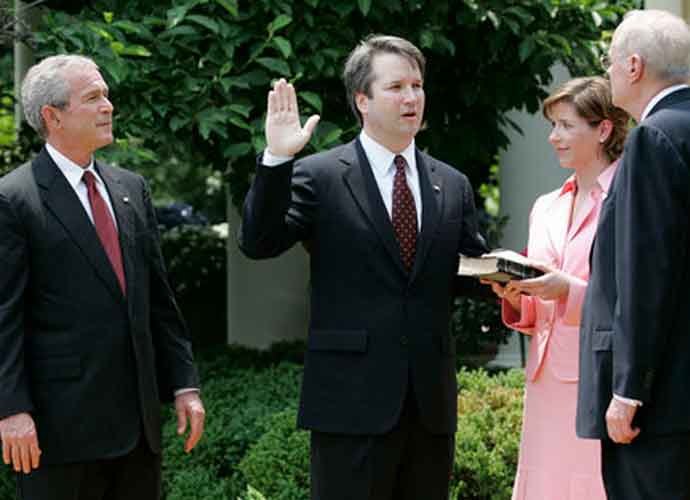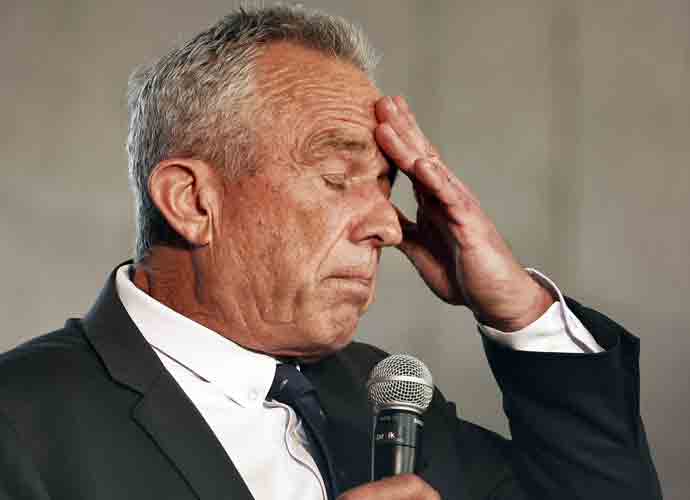Brett Kavanaugh Repeats Trump’s Words In Supreme Court Opinion Denying Wisconsin Ballot Extension
Supreme Court Justice Brett Kavanaugh on Monday foreshadowed the potential judicial arguments that could occur in the wake of a contested presidential election.
Writing in a concurring opinion in the 5-3 decision that rejected Wisonscin’s request to allow mail-in ballots, postmarked by Election Day, to be counted up to six days following the election.
Kavanaugh argued that received-by Election Day deadlines help “avoid the chaos and suspicion of impropriety that can ensue if thousands of absentee ballots flow in after Election Day and potentially flip the results of an election.”
His wording is similar to President Donald Trump‘s, who tweeted on Monday that mail-in ballots have “big problems” and that we “must have final total on November 3rd.” Twitter flagged the tweet for containing misinformation, as election experts have ensured no existence of widespread fraud via mail-in voting.
Subscribe to our free weekly newsletter!
A week of political news in your in-box.
We find the news you need to know, so you don't have to.
Big problems and discrepancies with Mail In Ballots all over the USA. Must have final total on November 3rd.
— Donald J. Trump (@realDonaldTrump) October 26, 2020
Kavanaugh then cited the controversial Bush v. Gore decision as precedent, and argued that states “do not have a blank check” to alter federal election laws.
“Under the U.S. Constitution, the state courts do not have a blank check to rewrite state election laws for federal elections,” he wrote. “The text of Article II means that the ‘clearly expressed intent of the legislature must prevail’ and that a state court may not depart from the state election code enacted by the legislature.”
While several other states have deadlines similar to what Wisconsin attempted to institute, Kavanaugh — much like the other justices in the majority — believed the change came too close to the election and is “reasonable given the all the circumstances.”
In his opinion, Kavanaugh also incorrectly referenced Vermont as an example of a state “that decided not to make changes to their ordinary election rules.”
“To be sure, in light of the pandemic, some state legislatures have exercised their Article I, §4, authority over elections and have changed their election rules for the November 2020 election. Of particular relevance here, a few States such as Mississippi no longer require that absentee ballots be received before election day. … Other States such as Vermont, by contrast, have decided not to make changes to their ordinary election rules, including to the election-day deadline for receipt of absentee ballots,” he wrote.
However, Vermont’s Secretary of State office corrected Kavanaugh in a tweet, clarifying that Vermont had indeed changed their rules, ensuring “all voters had a ballot & prepaid return envelope in hand 30 DAYS before the election.”
Get the most-revealing celebrity conversations with the uInterview podcast!








Leave a comment